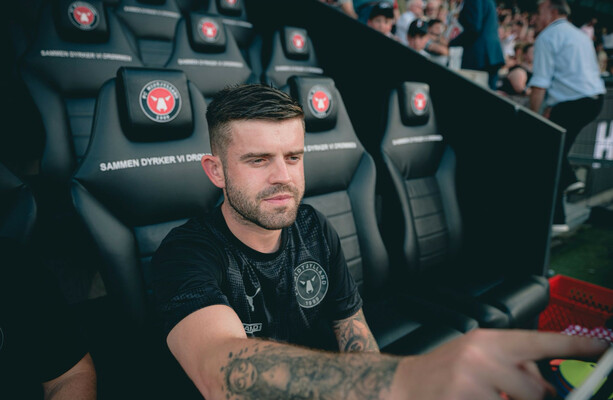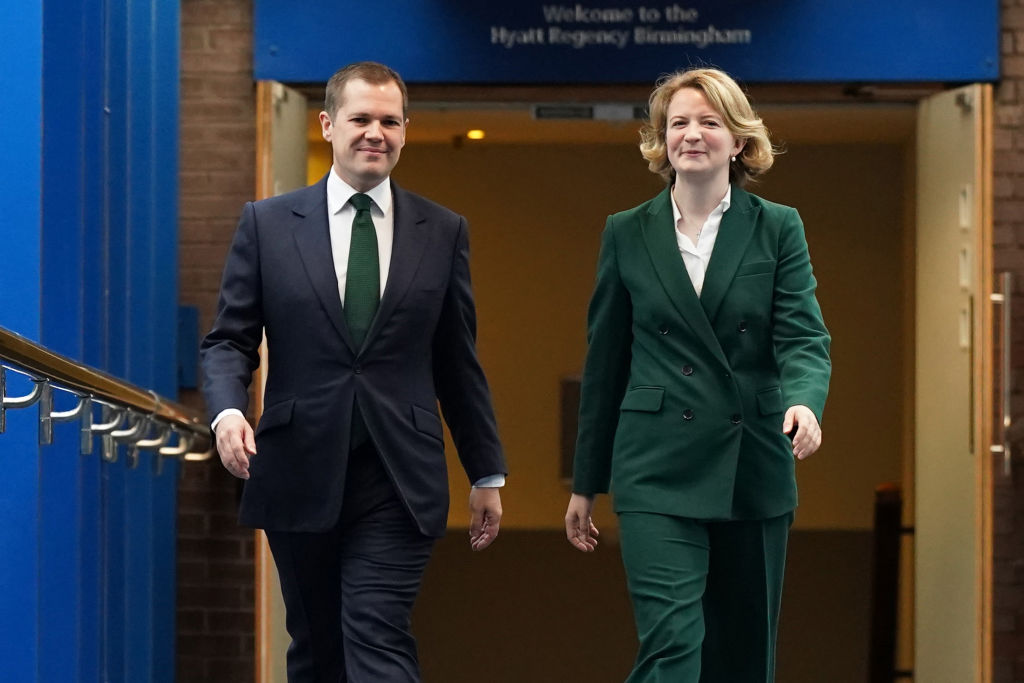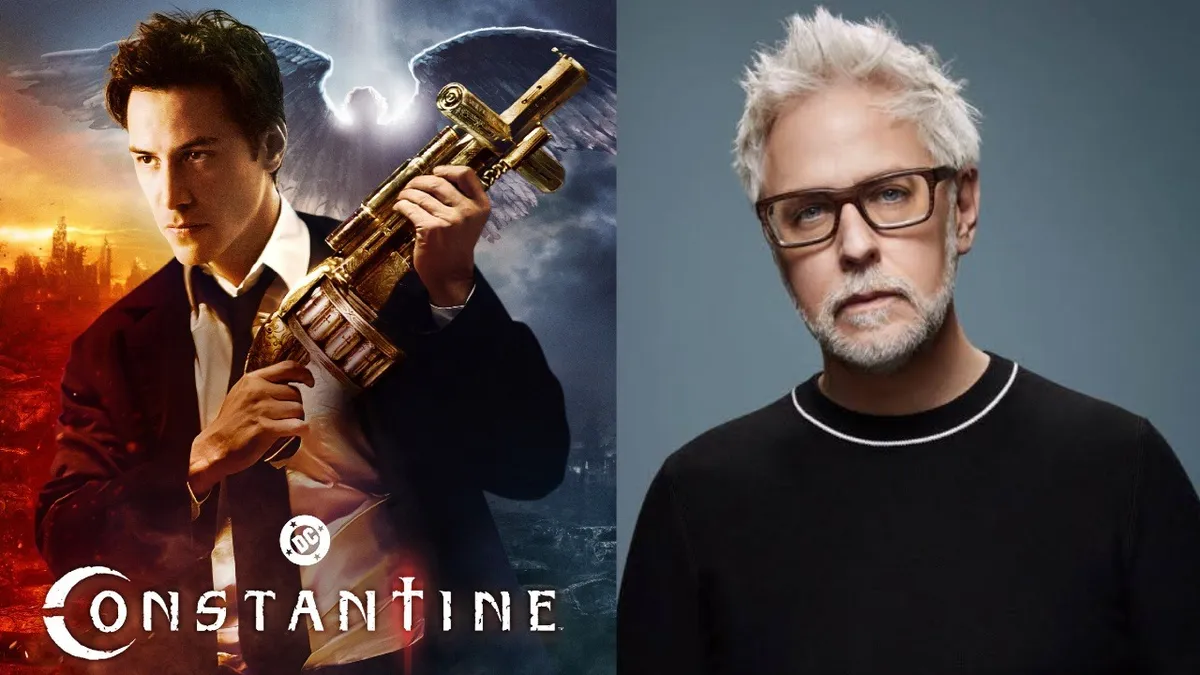Copyright the42

League of Ireland Horse Racing TV Listings GAA Fixtures The Video Review Sport meets news, current affairs, society & pop culture Rugby Weekly Extra Dive into all the news and analysis 3 times a week The Football Family Weekly insights from the week’s big talking points Advertisement More Stories Liam McCartan. Making waves Meet the Irishman working with European football's tactical trailblazers Limerick’s Liam McCartan, the lead first team analyst at Denmark’s Europa League table-toppers FC Midtjylland, speaks to The 42 about how elite modern football actually works. 6.04am, 27 Oct 2025 Share options Gavin Cooney LIAM MCCARTAN HAS always known the benefits of total preparation. He dreamed the usual dream of being a professional footballer and, in 2016, found himself as an U19s academy player on the bench for Limerick FC’s first team. With Limerick winning 4-1 and the game wending to a close, Chris Mulhall signalled that he had to be withdrawn. Manager Martin Russell turned around at his subs bench and saw that McCartan was the only player in full kit, with his shinpads on and his ankles taped. Russell sent him on for his senior debut with his home-town club. He went on to play with Athlone and Wexford but McCartan has plotted a different route to professional football. “My brain was better than my body, for sure,” he tells The 42. The current beneficiaries of McCartan’s rigour are Denmark’s FC Midtjylland [FCM], where he works as lead first team analyst. FCM are among the most forward-thinking clubs in the world, and their data-driven enlightenment has allowed them rise to a position of remarkable eminence in Danish football, all the while spreading the ideas by which the Premier League is now living. McCartan is therefore at the game’s cutting edge, and he is open in explaining how the game actually works nowadays. The club have the track record if not the size of a giant. Having won four of the last 11 Danish top-flight titles, they established themselves in European football, and currently sit top of the league phase of the Europa League, with three wins from three. McCartan is just 28 but his club are even younger, having been founded in 1999. FCM are based in the town of Herning, which has a population of only a few thousand more than the county of Longford, but boast on their website that their “unity and determination can create the impossible”, proclaiming they have “had the courage to think innovatively and step out of the shadows.” FCM were early adopters of the data analysis and set-piece emphasis that has become the dominant outlook of the Premier League, but even as others have cottoned on to their ideas, a glance at the Europa League table will show that FCM have retained their edge. But before McCartan joined the original thinkers of FCM, he rose through English football’s traditionally precarious ranks. He combined his early football career with a degree in sports management in IT Carlow, targeting a career in on-the-grass coaching. He got his first break with the Irish U15s through coach Jason Donohue, who asked him to do analysis for a player assessment day. This was the first time, he says, that the players had actually done any video analysis, and part of it was to instruct them how to play against a system other than the 4-3-3 which had become dogma under the FAI’s former high performance director, Ruud Dokter. He then elected to move to England, partly under the game’s principle of precarity. “I didn’t want to go down the Irish route because if you get that jump across as a coach, you have one chance and if it doesn’t go well, you could be out of the game.” He combined an academy analyst role at Stoke City with a masters in performance analysis, and he continued at Stoke until 2022, at which point he landed a job as the lead performance analyst at Swindon Town. Within a year he was promoted to coach analyst, meaning he was effectively number three on the coaching staff. “I had all the analysis to do, and then I was in charge of leading the individual development of players, improving the players and hopefully selling them at a profit.” He would review clips with players on specific parts of their game and arrange tailored sessions to improve them. McCartan meanwhile combined duties at Swindon with an analysis role with the Irish U21s in a campaign that came up agonisingly short of qualification for Euro 2025. (He describes manager Jim Crawford as among the most undervalued coaches in Irish football.) Advertisement The hands-on coaching at Swindon made it McCartan’s ideal job, though he was surrounded by uncertainty. In two years at the club, McCartan worked with five different managers and two different sporting directors. And while there’s plenty of money now sloshing around all of England’s professional leagues, it doesn’t necessarily spill over to ancillary staff. He was paid the minimum annual wage of £25,000 at Stoke, which was upped to £28,000 at Swindon. In spite of the peril and poor pay, he never considered a career change. “I’ve always been headstrong”, he says. “Maybe it’s my lack of height that I have in my body, my brain has to be a little headstrong. I always believed football was the route I want to be in and I still haven’t had any doubts about that. The buzz of a Saturday, and being involved in a game that you have to win so that you win and get a bonus. Each win is worth something, even if it’s just helping with getting the car filled up or getting the shopping done.” McCartan during his Swindon days. He didn’t change career but he did change surrounds, moving up a division to take a role with Bristol Rovers in 2024. It was during his first official week in the job that he took a call from an unknown number bearing a Danish prefix. FCM needed to hire an analyst, and McCartan came recommended by Jordan Keogh, an analyst at Aston Villa. McCartan was given an FCM game to analyse overnight and a personality survey to fill out, before then progressing to an interview with the club. When all went well, he exercised a seven-day notice period in his Bristol Rovers contract and moved to Denmark. The secret to FCM’s success, he explains, is there’s no real secret. The offices and training ground are open plan, the first team’s training plan is posted on the club website, and training sessions are open to the public all of the time. By contrast, the public are not allowed to attend Republic of Ireland senior men’s team sessions, and the media are allowed observe the first 15 minutes of sessions only. Football is so cluttered with emotion that this radical openness takes away much of the tension that arises from the game’s secrecy and allergy to leaks about injuries and team news. “There’s no unnecessary tension,” says McCartan. “In my two years at Swindon, there was a drama nearly every week. FCM is nothing like that.” He says that while every football club proclaims to be a ‘family club’, FCM actually mean it. While McCartan will get a day off every 10 days or so, the working hours are rarely longer than 7am to 5pm. The club don’t want any staff member staying so late as to meddle with their home life. His work is an exercise in extreme distillation. McCartan leads the analysis for league matches, which involves watching between six and eight matches featuring FCM’s next opponents, which all has to be delivered to the head coach and the staff in a presentation of no more than 12 minutes three days before the game. This analysis must present a profile of the opposition, specifically on how they build from goal kicks; how they build from midfield, or the middle third; how they usually score goals in the final third, be it primarily from crossing or intricate passing or running in behind; and how they transition to defend when they lose the ball. He then adds to that examples of how the opposition play without the ball: do they press goal kicks? Do they press high, or sit off in a mid or low block? How they usually concede the majority of their chances? And do they spring quickly for counter attacks? Once that is presented to the head coach and the rest of staff, they break for a couple of hours to ponder how best to exploit the opponent, and all then return with their ideas and to pick the FCM team. The next day’s training is focused on attacking and working on the patterns best suited to beating the opponent, with the following day’s session focused on defending against their strengths. All of these sessions are filmed via an overhead drone, and the best instances of what the coaches are looking for are clipped for a presentation to the players on the day of the game. A typical presentation on matchday will feature perhaps two minutes’ footage of the opposition, and eight minutes of clips from the two prior days’ training. (If a particularly effective attacking move resulted in a missed shot, McCartan edits out the shot, given there’s no need to be stressing anything negative.) Added to this is a meeting on set pieces pointing to opposition weaknesses. So while McCartan could watch 12 hours of footage of the upcoming opponent, the FCM players will rarely see more than 12 minutes of it. Footage is also clipped in-game to be shown to players at half-time, and then after the match, McCartan will sit down with the head coach to review it all. FCM also film the head coach’s pre-match meeting, so as to be able to review whether the players implemented what they had been told. At which point the process starts all over again. FCM’s commitment to set pieces is evident every day for McCartan, as the club offices feature a giant magnetic table on which the league’s teams are plotted according to their scoring difference on set pieces. FCM strive to be the best team in the world on set pieces, though as McCartan explains, their route to being so does not rely on some complex, NFL-style playbook on trick plays. “The process is so easy,” he says. “The most basic starting point is that 33% of goals are scored from set pieces, so we spend 33% of our training time on set pieces.” Where most teams start their 11 v 11 practice matches with a kick off or goal kick, FCM start theirs with a few set plays before playing away. As for match preparation, they identity which of the opposition players to bump and legally obstruct, while they analyse each referee to determine the legal extent of their obstruction in any give game. Emotion plays a role too, with FCM’s reputation for scoring from set pieces now going before them. “At home, when we get a set piece, the crowd get involved. It’s nothing huge, but almost like an Icelandic clap. It’s the tension for [opposition] players. Our players are talking to them, ‘Oh, you’re going to concede now.’ And then lo and behold, it happens.” FCM recently beat Ange Postecoglou’s Nottingham Forest 3-2 in the Europa League, entirely from set pieces: FCM scored from two of their own and then wrapped up the game when they countered quickly having been ready to intercept a Forest short corner. McCartan later learned of a conversation between Brazilian players from either team, in which the FCM player asked the Forest player what they had been working on. The Forest player revealed they had been training set pieces for two days straight. FCM’s openness does have its limits, though, with nobody willing to divulge the full details of the internal metrics the club use to recruit players and analyse their own performance. They are loyal to their process, though, seen most obviously by the fact they sacked head coach Thomas Thomasberg this season despite the fact the team were on a 17-match unbeaten run. “It is not about the results, but about the fact that our rating has not developed in the desired direction over a long period of time”, read the club statement. McCartan does explain one plank of the club’s philosophy. “We care about what happens in each box,” he says, adding that “possession for us is not the critical point of view.” To this the club have some high-profile believers, and McCartan agrees with my take that Pep Guardiola is travelling a similar journey, given the presence of penalty-box giants like Gianluigi Donnarumma and Erling Haaland in Guardiola’s Barcelona team would have been inconceivable. A view of FCM's MCH Arena.Alamy Stock Photo Alamy Stock Photo McCartan also alights on a trend in the modern game in which coaches are becoming more concerned with controlling an opponent’s transition opportunities, saying the belief that the team which runs more in a game will win is no longer true, pointing to the fact the three most recent Champions League finals were won by the team with the fewest sprints. “If you’re running more,” he says, “you’re out of position more, and you are more in transition and not covering the right angles.” The longer we talk the more it becomes apparent that McCartan is working at one of the clubs from which the game’s prevailing winds are blowing. “I have always had my 10-year plans,” he says. “My 20s are all about learning the game and being in a good club and learning how football really operates from the inside. In my 30s I hope to make the transition to on to the pitch in some capacity, and then in my 40s, who knows what will happen. “The dream scenario is a professional player sees me and he wants to be the guy in front of the media, and I can be the guy on the training ground. We’ll wait and see if anything like that arises.” Should it arise, you can bet he’ll be ready for it. Gavin Cooney Viewcomments Send Tip or Correction Embed this post To embed this post, copy the code below on your site Email “Meet the Irishman working with European football's tactical trailblazers”. Recipient's Email Feedback on “Meet the Irishman working with European football's tactical trailblazers”. Your Feedback Your Email (optional) Report a Comment Please select the reason for reporting this comment. Please give full details of the problem with the comment... This is YOUR comments community. Stay civil, stay constructive, stay on topic. Please familiarise yourself with our comments policy before taking part. Leave a Comment Submit a report Please help us understand how this comment violates our community guidelines. Damaging the good reputation of someone, slander, or libel. Racism or Hate speech An attack on an individual or group based on religion, race, gender, or beliefs. Trolling or Off-topic An attempt to derail the discussion. Inappropriate language Profanity, obscenity, vulgarity, or slurs. Advertising, phishing, scamming, bots, or repetitive posts. Please provide additional information Thank you for the feedback Your feedback has been sent to our team for review. Leave a commentcancel Access to the comments facility has been disabled for this user View our policy ⚠️ Duplicate comment Post Comment have your say Or create a free account to join the discussion Europa League FC Midjytlland liam mccartan Making waves Republic Of Ireland Freebreathing space 'We have two wins from five games - That’s not what we set out to achieve' 58 mins ago FreeMarathon Girl Months after running her first ever marathon, this teenager claimed the Irish title in Dublin FreeDriving Seat Lando Norris takes drivers’ championship lead after commanding victory in Mexico FreeEuro zone Parrott scores twice in another AZ win, Ferguson unused in Roma victory Saquon Barkley leads Philadelphia Eagles to rout of New York Giants Play Off Push Carla Ward's balancing act as Ireland brace for Belgium reaction Club finals: Madden the emotional winners in Armagh, Monaghan's Scotstown go three-in-a-row Angry scenes as Shelbourne seal Europe with stunning comeback against Bohemians David Sneyd reports from Dalymount Park Ireland's back row and midfield calls intriguing as Farrell plots in Chicago Dublin marathon 2025 Daniel Mesfin and Eebbissee Addunyaa win Dublin marathon Brilliant Achievement In pics: Shamrock Rovers boss Bradley among the participants at Dublin City marathon more from us Investigates Money Diaries The Journal TV Journal Media Advertise With Us About FactCheck Our Network FactCheck Knowledge Bank Terms & Legal Notices Terms of Use Cookies & Privacy Advertising Competition more from us TV Listings GAA Fixtures The Video Review Journal Media Advertise With Us Our Network The Journal FactCheck Knowledge Bank Terms & Legal Notices Terms of Use Cookies & Privacy Advertising Competition © 2025 Journal Media Ltd Terms of Use Cookies & Privacy Advertising Competition Switch to Desktop Switch to Mobile The 42 supports the work of the Press Council of Ireland and the Office of the Press Ombudsman, and our staff operate within the Code of Practice. You can obtain a copy of the Code, or contact the Council, at https://www.presscouncil.ie, PH: (01) 6489130, Lo-Call 1800 208 080 or email: mailto:info@presscouncil.ie Report an error, omission or problem: Your Email (optional) Create Email Alert Create an email alert based on the current article Email Address One email every morning As soon as new articles come online Sign in or create a free account To continue reading create a free account Or sign into an existing account



